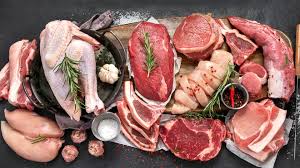From my own journey, transitioning from being health-conscious to nearly dying, I am uncovering the dangers of a diet focused on eating meat. What began as a way to nourish my body with only meat quickly evolved into a risky journey. Continue reading to discover the unforeseen risks. Let’s explore: how a carnivore diet almost killed me and why carnivore diet is bad? As unfortunate as it may be, no diet will guarantee results for every individual. Sad, isn’t it? Well, not necessarily. This reinforces the fact that each of us is unique.
What is a Carnivore Diet?
The carnivore diet focuses on consuming only meat and particular dairy items while avoiding fruits, vegetables, legumes, grains, nuts, and seeds. High-carb diets are believed to be responsible for the elevated levels of chronic illnesses.
Advocates propose limiting dairy intake to low-lactose choices like butter and hard cheeses. This diet is distinct from keto and paleo diets since it restricts carb consumption without totally removing carbs.
Shawn Baker, MD, a former surgeon, became known for advocating the Carnivore Diet in his 2019 book.
Comedian and podcast host Joe Rogan boosted the diet by providing more exposure. For one month in 2019, Rogan followed a strictly carnivorous diet and experienced a 12-pound weight loss and a notable rise in his energy levels.
Why Carnivore Diet is Bad?
Due to dietary deficiencies in the carnivore diet, relying only on animal products and avoiding plant-based foods presents a severe health risk.
A diet low in fruits, vegetables, and grains can cause a deficiency in essential vitamins and minerals. This can impair digestive health, weaken the immune system, and cause scurvy.
Consuming a high amount of saturated fat from red meat and animal products can raise cholesterol levels and elevate the chances of developing heart disease and stroke. A fiber deficiency can negatively impact gut health, resulting in constipation.
The strict diet is challenging to maintain in the long run, leading to nutrient imbalances and an increase in weight.
Major Carnivore Diet Side Effects
If you’re considering trying the carnivore diet, be aware that it comes with some important risks. These include:
Carnivore diets increase LDL and heart disease risk
The link between carnivore diets, elevated LDL levels, and an increased risk of heart disease is a contentious issue. Contrary to some low-carb narratives, extensive research supports the causative role of LDL in cardiovascular diseases. This body of evidence presents a compelling case against the unrestricted consumption of saturated fats, which are prevalent in meat-heavy diets.
Carnivore diet may turn on cancer pathways
Emerging research suggests that the high intake of certain amino acids, prevalent in the carnivore diet, could activate biological pathways associated with cancer risk. This connection underscores the complex relationship between diet and disease, challenging the reductionist view of nutrition and health.
Carnivore diets are not always ketogenic
The assumption that carnivore diets inherently induce ketosis is a misconception. The body’s metabolic response to excessive protein intake can inhibit the ketotic state, illustrating the nuanced interaction between dietary composition and physiological processes.
Carnivore diet burdens the liver and kidneys
The high protein content characteristic of the carnivore diet can place a significant burden on the liver and kidneys. This raises concerns about the long-term sustainability of such diets, especially for individuals with underlying genetic predispositions that affect protein metabolism.
Carnivore diet and urinary tract infections
The diet’s impact on the body’s pH balance and its potential to create favorable conditions for bacterial growth, such as E. Coli, highlights a seldom-discussed aspect of nutritional health. This serves as a reminder of the interconnectedness of diet, body chemistry, and disease risk.
Carnivore diet and gut health
The exclusion of dietary fiber in the carnivore diet raises concerns about its long-term impact on gut health and disease risk. The potential for meat-centric diets to alter the gut microbiome and increase TMAO levels adds another layer of complexity to the discussion on dietary health.
Carnivore diet and gout
The accumulation of uric acid in joints caused by a carnivorous diet high in purine-rich foods like red meat and organ meats can raise the risk of gout. The lack of plant-based foods can aggravate this inflammation, which can cause frequent flare-ups and eventually worsen the problem.
Don’t believe the science?
Skepticism towards scientific findings is a natural part of the discourse on diet and health. However, the weight of evidence suggesting potential health risks associated with meat-heavy diets warrants careful consideration. This skepticism should serve not as a dismissal of scientific evidence but as a catalyst for further inquiry and balanced dietary choices.
Also Read: Exploring Joe Rogan Carnivore Diet: Tips, Benefits, and Long-Term Effects
3 Alternatives to the Carnivore diet
Here are a few other options that could deliver similar therapeutic advantages as the carnivore diet—but with less potential risk
Traditional elimination diet
Traditionally, an elimination diet involves removing common allergens and irritants like sugar, dairy, gluten, and soy to identify dietary sensitivities and improve overall health.
In order to pinpoint particular triggers, a rigorous elimination phase is usually followed by a gradual reintroduction of foods. With less stringent restrictions than a carnivore diet, this approach can help resolve symptoms such as chronic inflammation, digestive issues, and other ailments.
Fasting mimicking diets
In mice, a diet that simulates fasting can prevent cancer and aging, reverse type 1 and type 2 diabetes, and improve age-related cognitive decline.
The fasting-like diet has been shown to dramatically cut body weight, enhance cardiovascular risk factors, reduce inflammation, and even alleviate multiple sclerosis symptoms in humans.
Food sensitivity tests
Food sensitivity testing provides a customized method for managing dietary health by assisting in identifying particular foods that may result in adverse reactions or discomfort.
Usually, blood samples are examined for immunological reactions to different diets in these tests.
Identifying sensitivities allows people to modify their diets to avoid trigger foods while still getting enough nutrients; this is a more individualized approach than following the rigid carnivore diet.
What does it mean to “overdo it” with animal protein?
“Excessively consuming” animal protein refers to consuming too much protein from animal sources, such as red meat, poultry, and dairy products.
This can result in various health complications, including increased pressure on the kidneys due to the greater requirement to eliminate protein byproducts, a higher risk of heart problems from increased saturated fat consumption, and possible nutrient deficiencies if the diet is not diverse.
Moreover, persistently enhanced protein levels might interfere with metabolic functions and lead to chronic health issues like osteoporosis or kidney stones.
Carnivore Diet Results
Carnivore diet before and after images display the remarkable impact of reconnecting with our ancestral eating habits.This involves consuming only fatty meats and animal products, frequently along with intermittent fasting.
If you’re transitioning from a standard American diet rich in carbohydrates and plant-based items, this almost all-meat diet may seem incredible. Carnivore meals are abundant in saturated animal fats and high-cholesterol foods.
There’s an absence of fiber, fruits, or vegetables. However, the before and after images clearly show how reducing carbs and regularly consuming fats leads to important weight loss. It’s also essential to recognize that weight loss is merely the most apparent “side effect” of choosing a carnivore diet.
Many individuals attribute their restoration of metabolic wellness, fitness, and mental sharpness to a carnivore diet, while also reversing various disease symptoms and reducing medications. Therefore, these before and after images tell a much richer and often unseen story about health and recovery.
Is a Carnivore diet safe?
The carnivore diet, which removes all plant-based foods and focuses exclusively on animal products, poses various health risks. It can lead to nutrient deficiencies by omitting important vitamins, minerals, and fiber, resulting in problems like scurvy and digestive issues.
The high levels of saturated fats and protein may put stress on the kidneys and liver, which could enhance the risk of heart disease and kidney stones.
While some individuals might experience short-term advantages, the restrictive nature of the diet and the potential for long-term health issues emphasize the necessity of consulting a healthcare professional before implementing such a dietary change.
Also Read: Jordan Peterson Diet: A Guide to His Eating Habits and Health Approach
Is Carnivore diet healthy?
The carnivore diet might provide temporary advantages for a few individuals, but it carries notable health dangers, such as nutrient shortages and pressure on the kidneys and heart.
Sticking to this diet for an extended period can result in significant health problems, so it’s essential to seek advice from a healthcare professional before beginning.
Alarming side effects of ‘carnivore diet’ as man left with heart issues (A nutrition expert)
A nutrition specialist has stated that adhering to a carnivore diet resulted in several adverse effects on his health. Paul Saladino, known as the Carnivore MD, revealed that he abandoned the diet after two years due to the “persistence of unpleasant symptoms”.
During an appearance on the More Plates More Dates podcast, Paul detailed his experiences with sleep issues, heart palpitations, and muscle spasms. He also acknowledged that his testosterone levels had declined.
“I began to wonder if long-term ketosis is not ideal for me,” he shared. After doing some personal research, Paul admitted that long-term ketosis was not beneficial for him – stating that it is “likely not a great choice for most humans”.
His interview was posted by personal trainer and online figure Ben Carpenter, who remarked: “Honestly, I am conflicted. I appreciate seeing people publically reassess their views. Acknowledging mistakes indicates growth and maturity.”However, he was one of the leading advocates for the carnivore diet globally.
He wrote an entire book, asserting it was the key to ‘releasing optimal health.’ He initiated a whole movement, which he now claims is ‘likely not great for most humans’.”
Carnivore diet Client reviews
- Hannah had been dealing with chronic fatigue and joint discomfort for many years. Even after experimenting with different diets and treatments, nothing seemed to ease her symptoms. When she learned about the Carnivore Diet, she decided to try it.
2. After a few weeks, Sarah observed a notable increase in her energy levels. Her joint pain started to diminish, and she felt more concentrated and mentally sharp than ever before. “I never thought that simply changing my diet could have such an important effect on my life,” she states.
3. For Tom, weight had always posed a challenge. He had attempted numerous diets, yet none seemed to provide lasting results. When he came across the Carnivore Diet, he was doubtful but fully welcomed it.
4. Over the following six months, John shed more than 50 pounds. More considerably, he attained a newfound sense of confidence and well-being. “The weight loss was fantastic, but what amazed me was how much better I felt overall. It was like a cloud had lifted from my mind,” John reveals.
Conclusion: The carnivore diet almost killed me
If you are in good health, it’s likely fine to attempt this diet, provided you don’t adhere to it for longer than a week to 10 days. Reduce saturated fat using leaner protein sources like skinless chicken rather than fattier options like steaks, lamb, and ground beef.
Add seafood for its omega-3 fatty acids. Also, consider taking vitamin, mineral, and fiber supplements to address nutritional deficiencies.
Also Read: Why Lab-Grown Meat Is Bad: Health, Environmental, and Ethical Concerns

